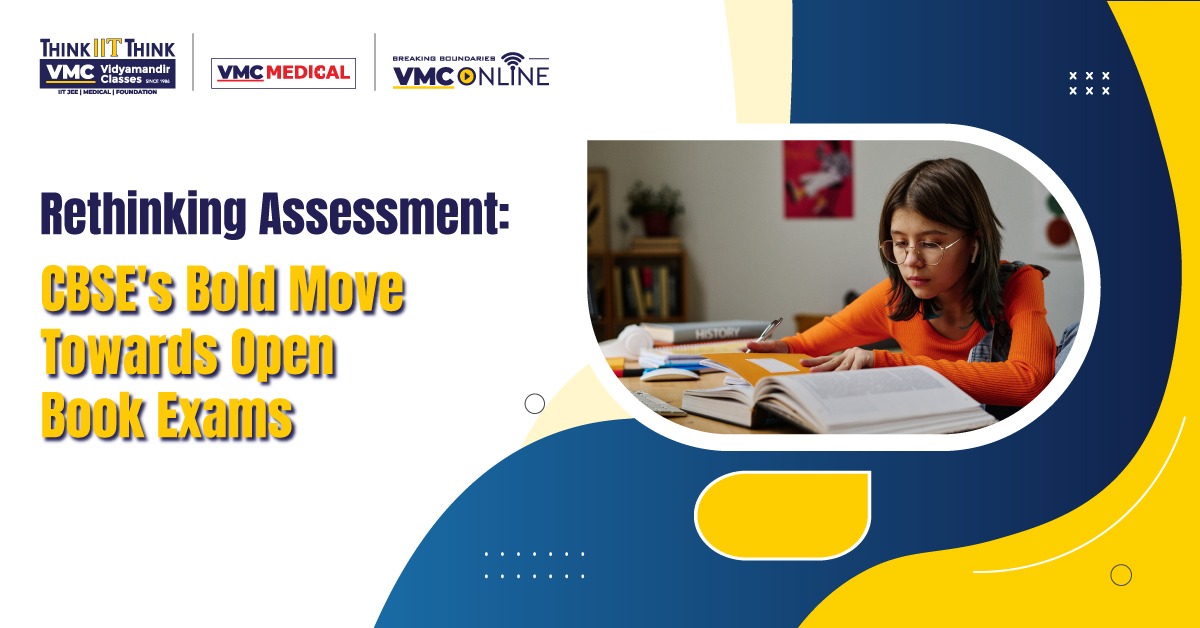Rethinking Assessment: CBSE’s Bold Move Towards Open Book Exams
 Posted On
Posted On
229 total views, 2 views today
In a bold move aimed at revolutionizing the traditional examination system, the Central Board of Secondary Education (CBSE) is considering a shift towards Open Book Examinations (OBE) for students across Classes 9 to 12. This visionary step, in alignment with the recommendations of the new National Curriculum Framework introduced recently, signifies a paradigm shift in how students are evaluated in the Indian education system.
Piloting a New Era:
The CBSE is gearing up for a pilot run of open-book assessments in a select number of schools. This trial will focus on key subjects such as English, Mathematics, and Science for Classes 9 and 10, and English, Mathematics, and Biology for Classes 11 and 12. The primary objective of this pilot phase is to evaluate the effectiveness of OBEs, measure the time taken by students to complete these assessments, and gather invaluable feedback from stakeholders.
Dispelling Misconceptions:
Contrary to popular belief, open-book exams are not synonymous with simplicity. They demand a higher level of cognitive engagement from students, emphasizing comprehension, analysis, and the application of concepts over rote memorization. The essence of open-book assessments lies in assessing students’ higher-order thinking skills, fostering critical analysis, and nurturing their problem-solving abilities.
Pilot Implementation and Decision-making:
Scheduled for November-December, the proposed pilot aims to meticulously assess the viability and efficacy of OBEs before broader implementation. Central to this assessment is the emphasis on evaluating students’ higher-order thinking skills and their capacity for creative problem-solving.
Consultation and Preparation:
To ensure a seamless transition to OBEs, the CBSE is diligently finalizing the design and development of the pilot program by June. Drawing inspiration from Delhi University’s pioneering efforts in conducting open book tests during the Covid-19 pandemic, the CBSE seeks guidance to navigate potential challenges, including equitable access for underprivileged and visually challenged students. Recognizing the initial opposition faced by this initiative, particularly concerning accessibility issues, the CBSE is committed to addressing these concerns through inclusive and thoughtful design.
Learning from Past Experiences:
Reflecting on past experiments, particularly the Open Text-Based Assessment (OTBA) format, the CBSE acknowledges the need for continuous improvement. The discontinuation of OTBA was a result of unfavorable feedback, highlighting the importance of meticulous planning and consultation. Discussions within the curriculum committee underscore the significance of high-quality textbooks and advocate for the active involvement of teachers in the initial OBE trials. This collaborative approach aims to uphold standards akin to advanced placement examinations, ensuring a rigorous yet progressive evaluation system.
Embracing Change:
As the CBSE embarks on this transformative journey towards OBEs, it symbolizes a departure from conventional assessment methods towards a more dynamic and inclusive evaluation framework. By embracing innovation and leveraging the insights gained from past experiences, the CBSE is poised to usher in a new era of education that nurtures critical thinking, fosters creativity, and empowers students to thrive in an ever-evolving world.
In Conclusion:
The adoption of Open Book Examinations by the CBSE marks a significant milestone in the evolution of the Indian education system. By prioritizing higher-order thinking skills and embracing innovative assessment methods, the CBSE is not only redefining how students are evaluated but also fostering a culture of lifelong learning and adaptability. As we eagerly anticipate the results of the pilot phase, it is evident that the CBSE’s commitment to excellence and inclusivity will continue to shape the future of education in India.




